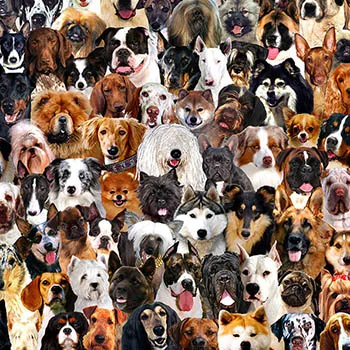In this section
How Do I Choose a Dog Breed?

share:
Every dog deserves a loving home and we will help you find the best match for your family!
BREED MATCH
Take our quick quiz to see which breed suits your lifestyle
WHAT COAT WORKS FOR YOU
What kind of coat will your puppy grow into?
- Short coats: These coats don’t tangle or mat, but they do shed heavily twice a year. Examples include: Pointers, Weimaraners and Boxers.
- Mid-length coats: Breeds with this coat will shed heavily twice a year, however the daily upkeep is usually minimal. Examples include: the Tibetan Spaniel, the Brittany and the Borzoi.
- Double coats: Examples include German Shepherds, Collies, and Australian Shepherds, among others. These breeds have a long undercoat with a short outercoat.
- Long coats: This type of coat is usually silky and flowing, and needs daily brushing. Examples: the Afghan Hound, the Irish, English and Gordon Setters.
- Curly coats: An example of a breed with this coat is the Poodle. These coats will need regular grooming and haircuts, or professional grooming every 4 to 6 weeks.
- Wire coats: Examples of breeds with this type of coat include the Wire Fox Terrier and the Scottish Terrier. These breeds may need to be clipped every 6 to 8 weeks.
ACTIVITY LEVEL, PERSONALITY AND TRAINABILITY
Just as there are many different coat types among breeds, the activity level, personality, and trainability of puppies will also vary, depending on the individual puppy.
- High activity level: Cocker Spaniels, Jack Russell Terriers and Sheepdogs are just a few of the breeds known for high activity levels.
- Less active breeds: Chow Chows, Great Danes, and the Basset Hound are a few examples, usually best-suited for senior citizens, or people with a laid-back lifestyle.
- Personality: Some breeds, such as the Bichon Frise and the Shih Tzu crave being with their owner as much as possible and are best for people who are at home most of the time. Others, like the St. Bernard, will bond with their owners but usually don’t feel the need to follow them from room to room.
- Trainability: Every puppy needs training and each will learn differently. However, some breeds are traditionally easier to train, such as the Standard Poodle and the German Shepherd, among others.
Review this article:



